While the focus has shifted from speculation to utility in today’s evolving crypto market, many users are still caught between finding a platform that offers sufficient liquidity, security, and ease of use for storing or spending digital assets. With several well-known platforms tightening operations or exiting certain regions, UK-based users are left with the difficult task of evaluating alternatives that meet both compliance standards and everyday functionality.
This brings us to Poloniex, a name that may not resonate as loudly as some of its competitors today but still remains in circulation. Launched in 2014, Poloniex is a global cryptocurrency exchange offering spot and margin trading, as well as access to a wide range of altcoins. While its early years earned it a reputation as one of the more prominent platforms, it has since struggled to maintain consistent visibility or favour among UK users. Amid increasing competition, a relatively low profile in the UK, and few standout advantages, Poloniex has not seen widespread adoption locally. Even so, it still serves as a viable platform for traders exploring secondary options.
This Poloniex review for UK users aims to provide a clear and unbiased assessment of the platform for anyone considering it for cryptocurrency storage, trading, or payments. We’ll explore the platform’s core offerings, including its supported assets, security practices, trading features, fee structure, and customer support. We’ll also briefly compare Poloniex with other exchanges that are more commonly used in the UK, to provide a broader sense of its standing.
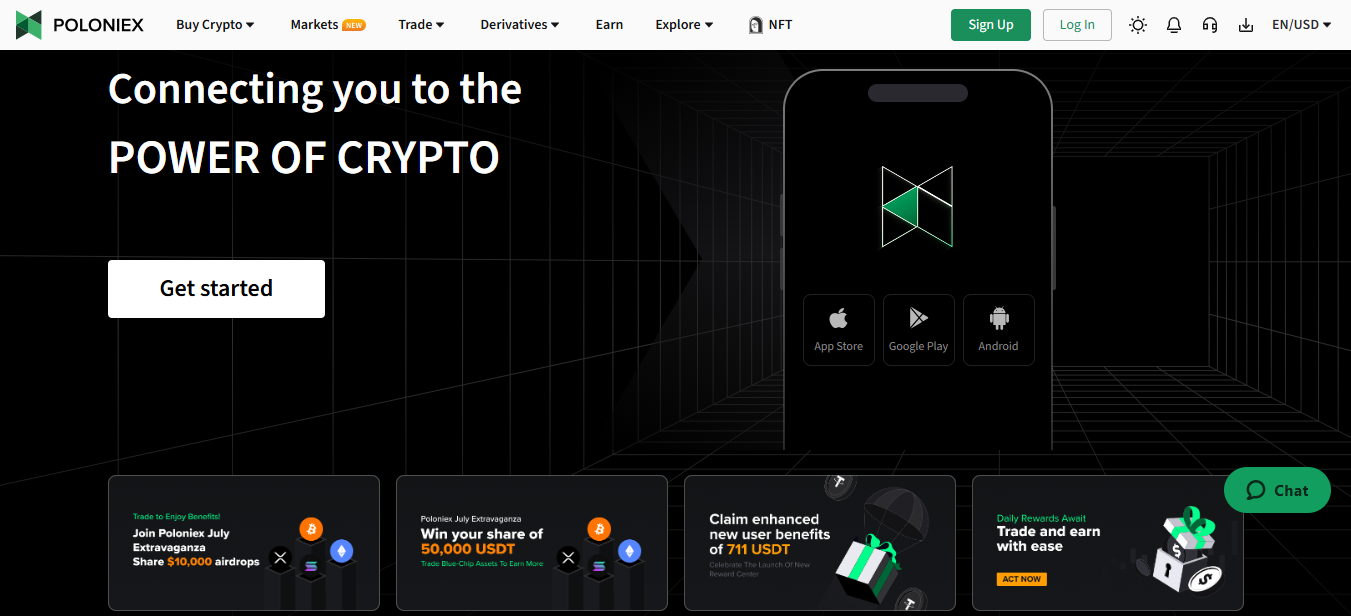
How does Poloniex work in the UK?
Poloniex operates as a global cryptocurrency exchange, and its core functions are available to UK users through its web-based interface and mobile app. The platform allows users to register with an email address, complete a basic identity verification process, and begin trading once their account is active. UK residents can access a wide range of crypto-to-crypto trading pairs, including popular assets such as Bitcoin (BTC), Ethereum (ETH), and various altcoins.
The Poloniex trading platform offers spot trading, margin trading, and access to some DeFi-related features, such as staking and lending. Users can deposit cryptocurrencies into their Poloniex wallets and execute trades based on market or limit orders. The trading dashboard provides real-time price charts, order book data, and historical trade information to help users make informed decisions.
Although the platform does not offer direct fiat on-ramps for GBP, users in the UK can still interact with Poloniex by transferring crypto from other wallets or exchanges. The overall process is streamlined and designed to support both casual and active traders within the UK market.
Is Poloniex legal in the UK?
Poloniex is not a UK-registered cryptocurrency exchange and does not hold a license or registration with the Financial Conduct Authority (FCA), the primary regulatory body overseeing financial services in the United Kingdom. This means that Poloniex does not operate under the UK's specific regulatory framework for crypto asset service providers. However, UK residents can still access and use the platform at their own discretion, as there is no outright ban preventing individuals from using overseas exchanges like Poloniex.
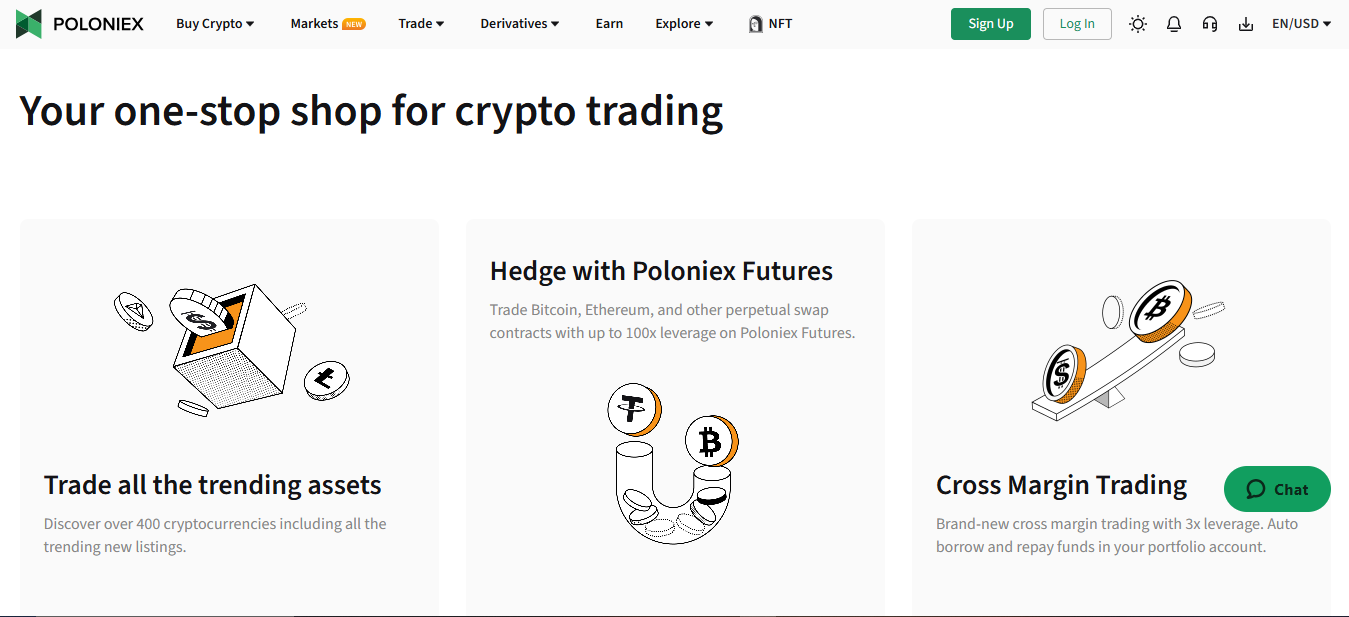
The platform functions as a centralised exchange, allowing users to trade a wide range of cryptocurrencies, manage wallets, and access basic market tools. While Poloniex is accessible from the UK, its operations are governed by international standards based on its country of incorporation, not by UK financial regulations. As such, it is important for users to understand that Poloniex is not subject to the same consumer protection rules or compliance requirements that apply to FCA-registered platforms.
In summary, while using Poloniex in the UK is not illegal, the platform does not meet the UK’s regulatory standards for local crypto service providers. Users should take this into account when evaluating the platform for trading or storage purposes.
Are there any restrictions for UK users on Poloniex?
Poloniex imposes several restrictions that specifically affect users based in the UK, which stem from both internal platform policies and external regulatory considerations. UK users are restricted from accessing Poloniex’s Futures trading services as the platform officially announced that they are not eligible to enable futures trading accounts. Existing users who previously accessed this feature have been advised to close their open positions and discontinue use. This restriction aligns with increasing scrutiny of derivatives trading by UK regulators and reflects Poloniex’s current compliance stance.
The platform is also not authorised or registered with the UK Financial Conduct Authority (FCA). The FCA has issued a warning stating that Poloniex may be promoting financial services or products in the UK without proper authorisation. This raises concerns about the legal recourse available to users in the event of disputes or losses.
In addition, Poloniex implements a range of risk-management protocols that may result in temporary or partial account restrictions. These include measures such as disabling withdrawals for 24 hours following changes to security settings (e.g., two-factor authentication), suspending fiat purchases after multiple cancellations in a short period, and limiting trading or withdrawal functionality if an account triggers anti-money laundering (AML) or fraud detection systems. While these measures are not exclusive to UK users, they form part of the broader user experience and can impact accessibility and usability.
Furthermore, identity verification (KYC) is mandatory for all users who wish to access the full range of features on Poloniex. Unverified accounts remain subject to strict limits, including reduced withdrawal thresholds.
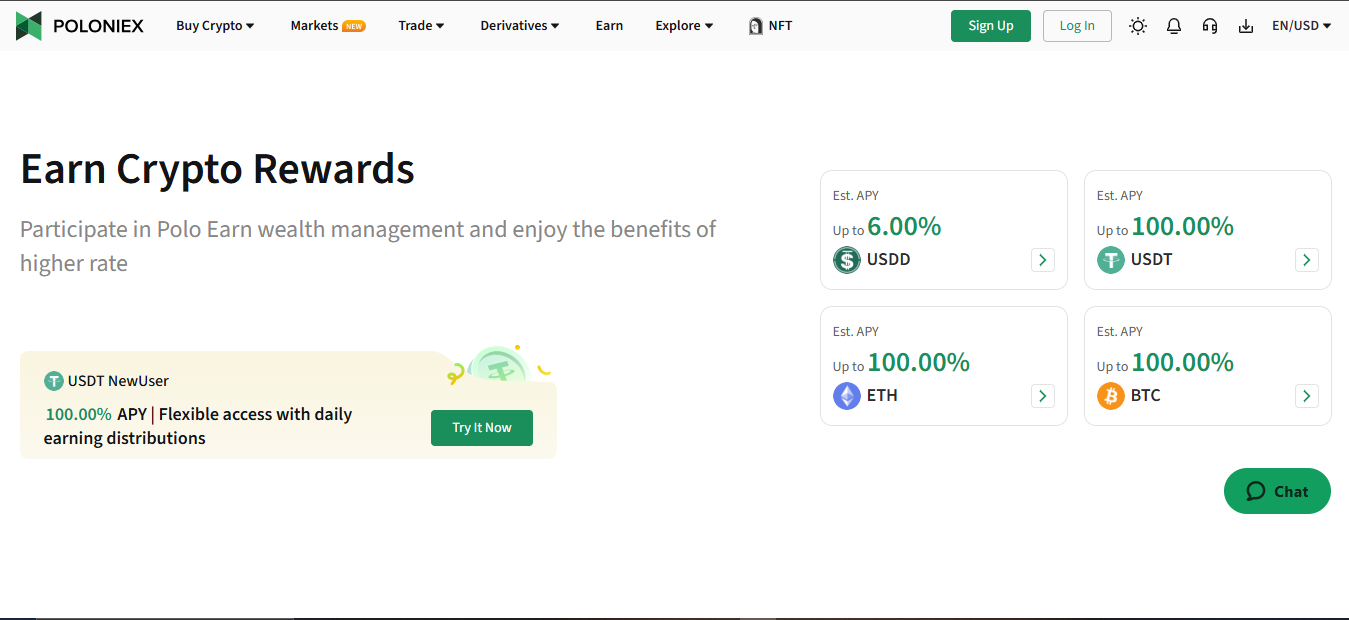
Poloniex Products and Offerings for UK Traders
- Spot Trading
Poloniex enables users to trade a range of cryptocurrencies through its spot trading platform. The interface is relatively straightforward and supports basic charting tools suitable for both new and experienced traders.
- Staking Services
Poloniex supports staking for certain proof-of-stake assets, allowing users to earn staking rewards directly from their exchange wallets. This feature simplifies participation in blockchain validation without requiring technical setup.
- Mobile App
The Poloniex mobile application is available for iOS and Android, offering access to trading features such as spot trading.
- Poloniex Wallet
Users have access to an integrated exchange wallet for storing and transferring crypto assets. However, the wallet is custodial, meaning users do not control their private keys.
What Cryptos are Supported by Poloniex?
Poloniex offers a broad selection of cryptocurrencies for UK users, catering to both mainstream and niche interests in the digital asset space. Some of the most commonly traded coins on the platform include Bitcoin (BTC), Ethereum (ETH), Tether (USDT), and Litecoin (LTC). In addition to these widely recognised assets, Poloniex also supports a variety of altcoins such as Tron (TRX), Dogecoin (DOGE), and Polkadot (DOT), allowing users to explore different parts of the crypto ecosystem beyond the most dominant tokens.
Overall, the exchange currently lists over 400 cryptocurrencies for trading, covering a wide range of blockchain projects, including utility tokens, DeFi assets, stablecoins, and lesser-known tokens.
Poloniex Fees and Charges Explained for UK-Based Users
Poloniex applies a tiered fee structure for spot trading, which applies to UK-based users. The platform charges standard trading fees starting at 0.09% for both makers and takers. These fees are adjusted based on the user’s 30-day trading volume, with the most active traders eligible for reduced rates, down to 0.00% for makers and 0.06% for takers at the highest VIP tier. Withdrawal fees vary depending on the specific cryptocurrency; for instance, Bitcoin withdrawals currently incur a fee of approximately 0.0002 BTC.
The exchange does not impose any account maintenance charges, which may be advantageous for users who trade infrequently. However, an inactivity fee is levied by Poloniex only when an account has had no login or transactional activity for 12 consecutive months. It is important to note, however, that standard network fees still apply when transferring assets to or from external wallets. The platform does not control these blockchain-related charges and may fluctuate based on network conditions.
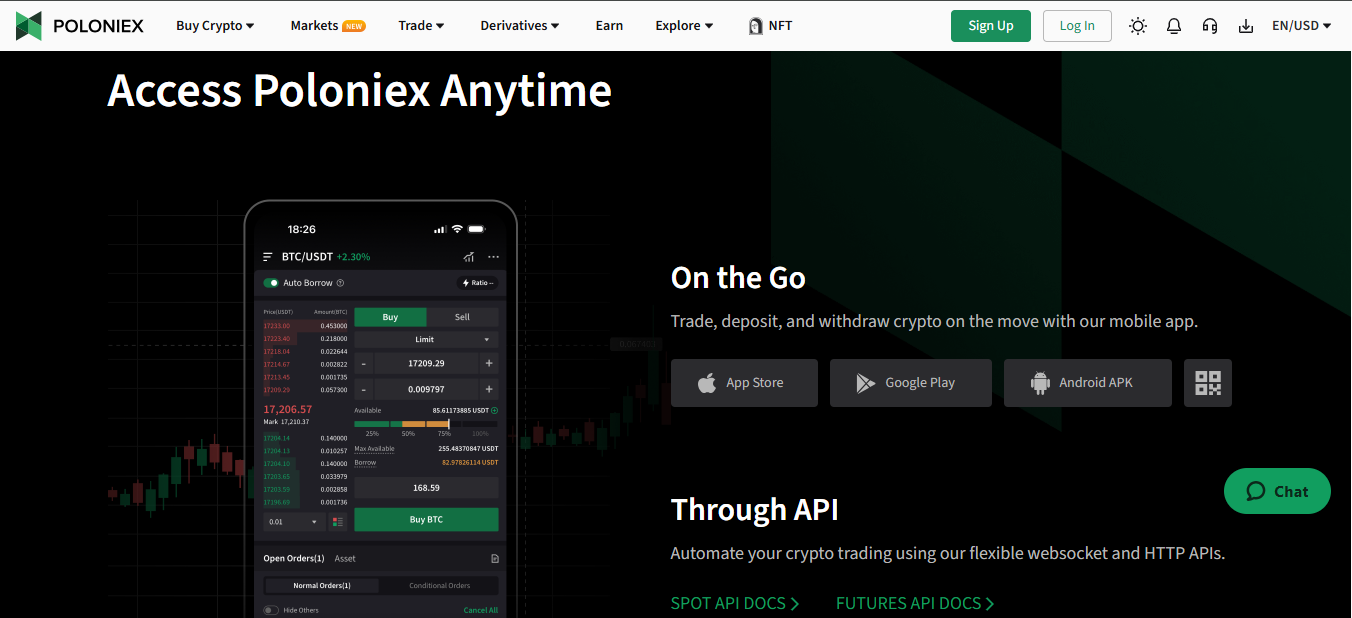
Pros and Cons of Using Poloniex in the United Kingdom
Pros
- Wide selection of altcoins and trading pairs.
- No mandatory KYC for basic account tiers.
- Relatively low trading fees.
- Browser-based and mobile trading platform.
- Crypto-to-crypto trading without fiat involvement.
- Staking options available for select assets.
Cons
- Not regulated by the UK Financial Conduct Authority (FCA).
- Lacks fiat on-ramp options for UK bank accounts.
- Lacks margin and futures trading features for UK users.
- Limited reputation and brand trust in the UK market.
- No support for GBP deposits and withdrawals through traditional banking channels.
3 Alternatives to Poloniex in the UK
MEXC
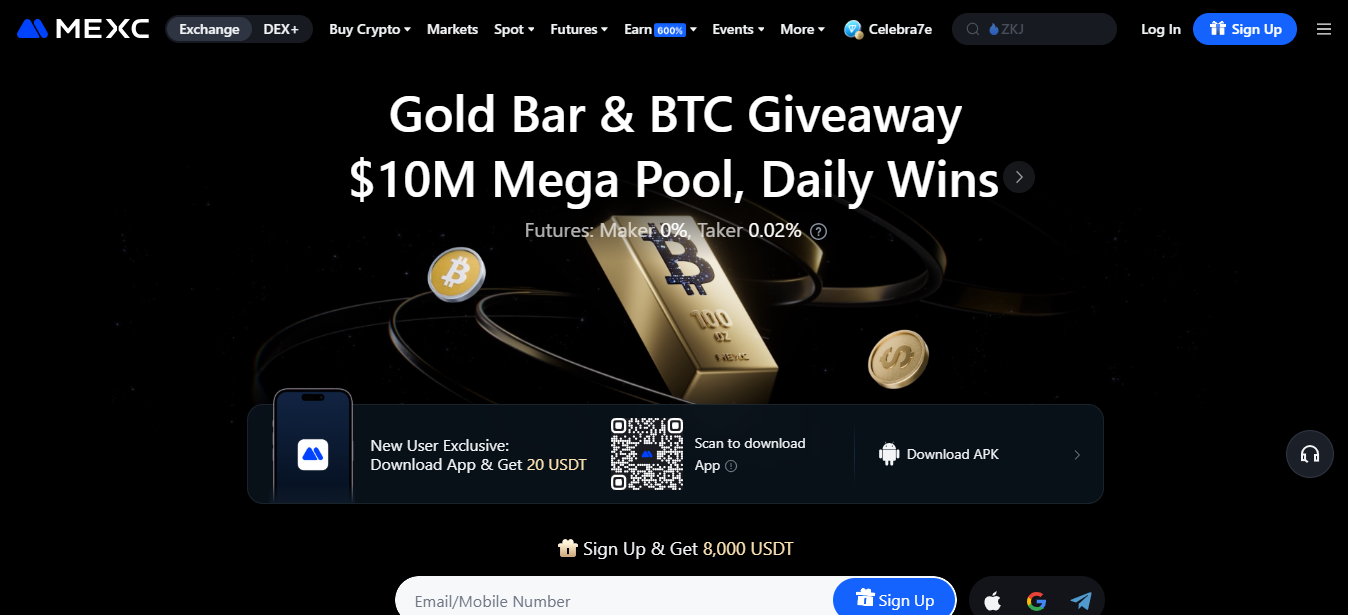
MEXC is a global cryptocurrency exchange known for its deep liquidity, wide asset selection, and solid trading infrastructure. It offers UK traders access to both margin and futures markets, appealing to more active users. While not FCA-regulated, it remains accessible due to its offshore operations. MEXC's reputation in the UK is growing steadily, particularly among users seeking advanced tools. Its standout feature, high-speed transaction matching and low latency, positions it as a strong alternative to Poloniex for performance-focused traders.
Uphold
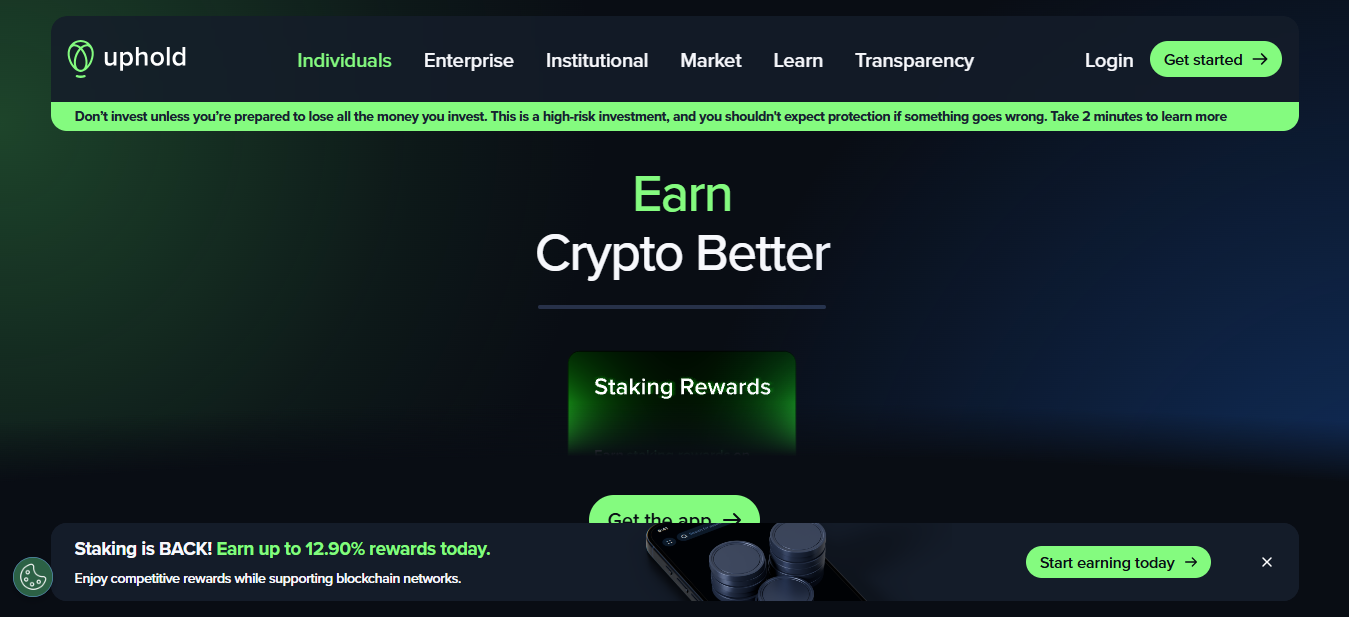
Uphold is a regulated multi-asset platform renowned for its broad range of supported cryptocurrencies and traditional assets, including stocks and precious metals. In the UK, it operates under strict compliance with local regulations, ensuring user protection. While margin and futures trading remain limited or unavailable for UK users, Uphold’s seamless integration of fiat and crypto wallets, along with instant asset conversion, distinguishes it as a reliable alternative to Poloniex for traders seeking simplicity and regulatory assurance.
Bitstamp
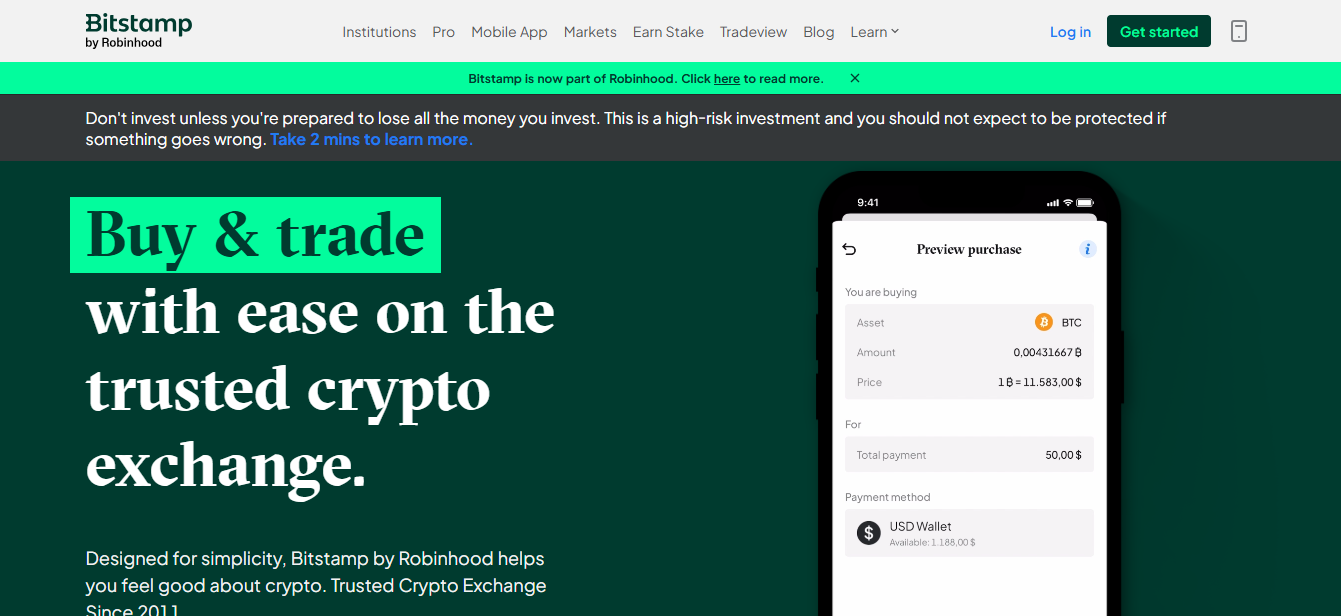
Bitstamp is a long-established cryptocurrency exchange recognised for its strong emphasis on regulatory compliance and transparency. Registered with the Luxembourg Financial Regulator and operating under EU financial laws, it offers UK traders a high level of trust and legal clarity. While it does not support margin or futures trading, the platform is favoured for its institutional-grade security, straightforward user interface, and seamless fiat-to-crypto transactions. Its consistent performance and reputation make it a reliable alternative to Poloniex for spot trading and long-term asset storage.
FAQs
How Safe is Poloniex for UK Users?
Poloniex offers basic security measures such as two-factor authentication, withdrawal restrictions after sensitive account changes, and risk monitoring protocols. However, it does not hold regulatory approval from the UK’s Financial Conduct Authority, limiting available consumer protections. While there have been no recent major security breaches, the absence of local oversight and its custodial wallet model may expose users to additional risks. Overall, Poloniex may be suitable for low-risk trading activities, but it should not be relied on for long-term asset storage or high-volume transactions.
How Good is Poloniex Customer Support in the UK?
Poloniex’s customer support for UK users can be considered average. The platform offers a standard ticket-based support system, a help centre with basic documentation, and limited real-time assistance. Response times are often delayed, and issue resolution can vary in consistency. While the support infrastructure exists, it lacks the responsiveness and proactive engagement expected by users navigating complex account or security concerns. The absence of region-specific support channels or live chat functionality further limits its effectiveness for UK-based traders seeking timely assistance.
Are there Any Hidden Fees on Poloniex?
Poloniex maintains a relatively transparent fee structure, with no concealed charges beyond what is publicly disclosed. Trading and withdrawal costs are clearly outlined, and the platform does not impose unexpected account maintenance fees aside from inactivity penalties after extended dormancy. For UK users, this transparency provides clarity when estimating total transaction costs. However, standard blockchain network fees, which fluctuate based on demand, still apply during transfers. While the fee model is straightforward, users should monitor policy updates to avoid unforeseen adjustments or limitations.
Which UK Banks Work with Poloniex?
Poloniex does not maintain direct banking relationships with UK financial institutions such as Barclays, HSBC, Lloyds, or NatWest. This absence of integrated fiat support means UK users cannot deposit GBP directly via local bank transfers or debit cards. Instead, interaction with Poloniex requires prior crypto transfers from other wallets or exchanges that support GBP transactions. This limitation may affect ease of access for users reliant on traditional banking channels and highlights the platform’s positioning as a crypto-to-crypto exchange rather than a fiat gateway.
Conclusion
This Poloniex review offers UK crypto holders valuable insights into the platform’s operational framework, regulatory status, and trading features. Understanding these factors is essential for assessing potential risks and opportunities when engaging with Poloniex. By examining fee structures, security measures, and service limitations, users can better evaluate whether the exchange aligns with their specific needs. Awareness of these considerations enables crypto owners to manage their assets responsibly and make practical choices that may enhance their trading experience and safeguard their holdings within the UK market.





 usdt
usdt xrp
xrp

